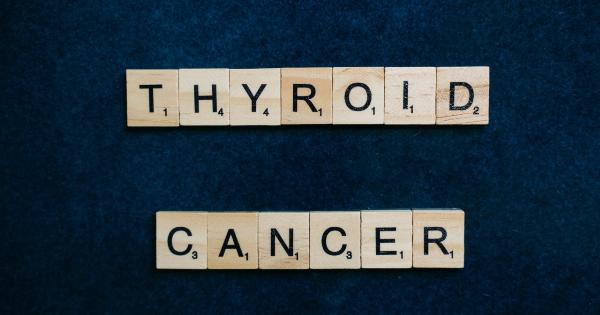Subacute thyroiditis is a condition characterized by inflammation of the thyroid gland. It is usually preceded by an upper respiratory tract infection and is more common in women than men.
The exact cause of subacute thyroiditis is unknown, but it is believed to be an autoimmune response triggered by a viral infection.
Symptoms of Subacute Thyroiditis
Subacute thyroiditis typically presents with the following symptoms:.
- Neck pain or discomfort
- Tender or swollen thyroid gland
- Low-grade fever
- Generalized weakness and fatigue
- Weight loss despite increased appetite
- Palpitations or rapid heart rate
- Increased sensitivity to heat
- Excessive sweating
- Insomnia
- Irritability
- Tremors
Diagnosing Subacute Thyroiditis
Diagnosing subacute thyroiditis is based on the patient’s symptoms, physical examination findings, and laboratory tests. During a physical examination, a healthcare provider may observe a tender or enlarged thyroid gland.
Laboratory tests are used to assess thyroid hormone levels and detect any abnormal antibodies.
Thyroid Function Tests
The following thyroid function tests are commonly performed:.
- Thyroid-stimulating hormone (TSH) test: Elevated TSH levels indicate an underactive thyroid gland, while low levels suggest an overactive thyroid gland.
- Free thyroxine (T4) test: Measures the amount of active thyroid hormone circulating in the bloodstream.
- Triiodothyronine (T3) test: Measures the level of the active thyroid hormone, T3.
Anti-thyroid Antibody Tests
Anti-thyroid antibody tests help identify the underlying cause of subacute thyroiditis. The following antibodies may be tested:.
- Thyroid peroxidase antibodies (TPO antibodies): Elevated levels suggest an autoimmune cause.
- Thyroglobulin antibodies (TG antibodies): Elevated levels may indicate autoimmune thyroid disease.
- Thyroid stimulating immunoglobulins (TSI): Presence of these antibodies indicates Graves’ disease, an autoimmune condition leading to an overactive thyroid gland.
Thyroid Ultrasound
A thyroid ultrasound may be performed to assess the size, shape, and texture of the thyroid gland. It can help identify any nodules or abnormalities that may be contributing to the inflammation.
Treatment for Subacute Thyroiditis
Subacute thyroiditis usually resolves on its own, and treatment focuses on managing symptoms and providing supportive care. The following approaches are commonly used:.
Non-Steroidal Anti-Inflammatory Drugs (NSAIDs)
NSAIDs such as ibuprofen or aspirin can help alleviate pain and reduce inflammation in the thyroid gland.
Beta-Blockers
Beta-blockers such as propranolol may be prescribed to manage rapid heart rate, palpitations, and tremors associated with subacute thyroiditis.
Thyroid Hormone Replacement
In some cases, if the thyroid gland is unable to produce sufficient thyroid hormone, a healthcare provider may prescribe thyroid hormone replacement therapy. This helps maintain normal thyroid hormone levels in the body.
Follow-up Monitoring
Patients with subacute thyroiditis require regular follow-up visits to monitor their thyroid function. As the inflammation resolves, thyroid hormone levels usually return to normal.
In some cases, hypothyroidism or hyperthyroidism may persist, requiring further treatment or adjustments in medication.
Prognosis and Recovery
The prognosis for subacute thyroiditis is generally good. Most individuals recover without long-term complications. The duration of the condition varies, but symptoms typically resolve within a few months.
In rare cases, subacute thyroiditis may recur or progress to chronic thyroiditis, requiring additional monitoring and management.






























